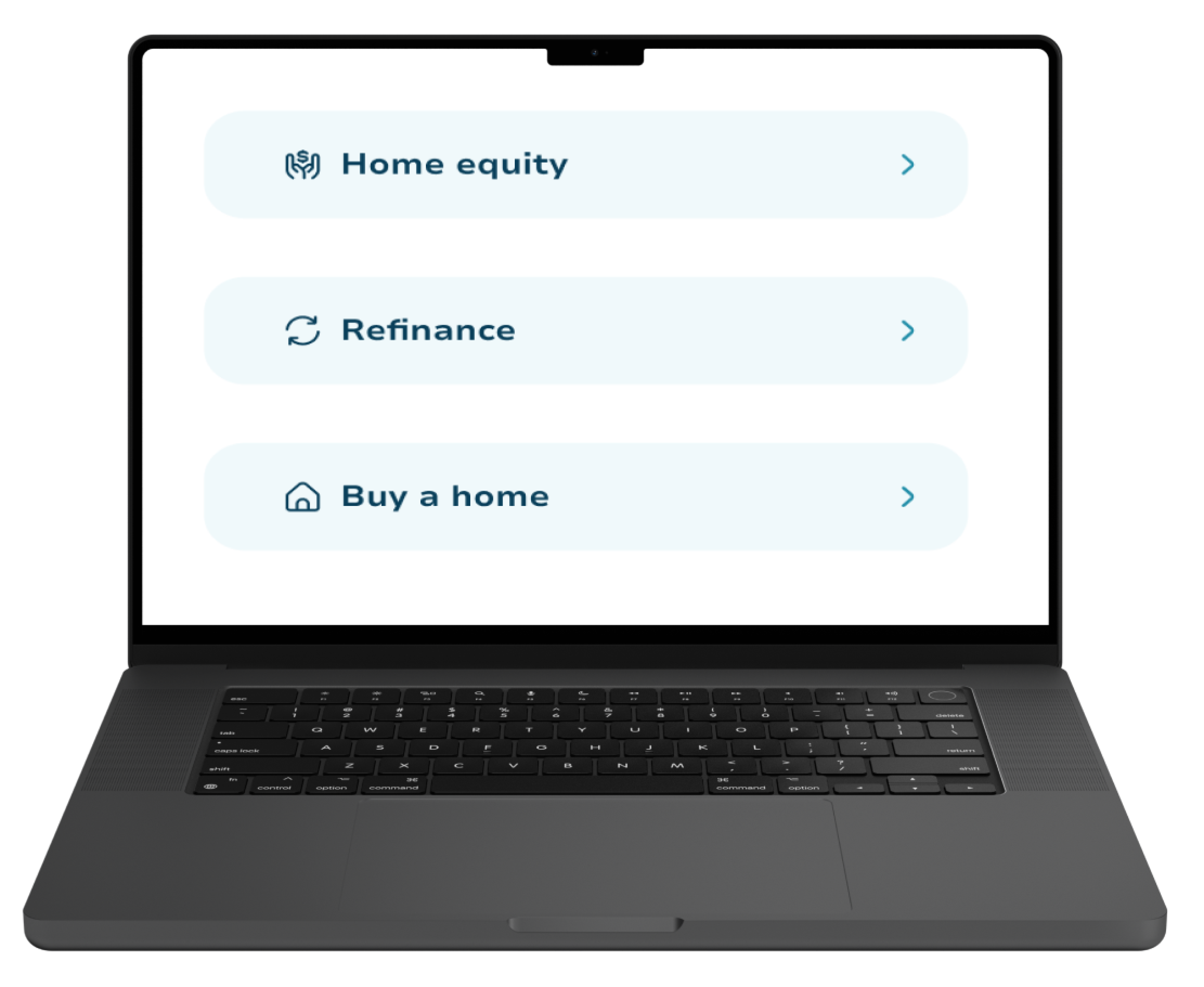You need to understand all implications of paying your mortgage with a credit card before you start the process. The method provided by third-party payment services might not work for every mortgage lender because unauthorized service use can breach loan agreements. Your mortgage provider needs verification about all non-traditional payment approaches before you begin.
If you’ve ever used a credit card for a major purchase, you may have wondered, “Can I pay my mortgage with a credit card?” This may sound like a smart way to manage short-term cash flow or earn rewards points, but it comes with plenty of hidden risks. We’ll break down exactly how it works, when it might make sense, and why, for most homeowners, safer options are often the better choice.
Quick Summary
You can pay your mortgage with a credit card, but it usually requires a third-party service and a 2%–3% fee.
Why some do it: credit rewards, short-term cash flow, or avoiding late fees.
Key requirement: Use an approved service and plan to pay off your card quickly.
Tip: A credit line may offer better flexibility and lower long-term costs.
Can I Pay My Mortgage with a Credit Card?
How It Works and Potential Risks
Technically, yes, but not directly. Credit card payments cannot be used for monthly mortgage payments by most lending institutions because they incur excessive processing charges. The acceptance of credit card payments would decrease profit margins while increasing fraud risks, so mortgage providers continue to use traditional methods, including ACH transfers and checks. Homeowners need to use third-party services to circumvent this payment limitation.
Before you swipe, run the numbers. Use our free mortgage calculator to estimate your payment and see how fees or interest might impact your budget.
Here’s what it looks like:
Third-party companies receive your credit card payment to distribute it to your mortgage lender by using checks or ACH transfers. The method seems advantageous yet it requires users to pay between 2% to 3% of their total payment amount.
Even if the transaction goes through, the real concern is whether it’s worth it. According to the Consumer Financial Protection Bureau (CFPB), third-party bill payment platforms can introduce unexpected risks, including delays, hidden fees, and payment processing issues that could result in late fees from your lender. When you factor in potential interest charges from your credit card, especially if you don’t pay off the balance in full. This strategy quickly becomes more expensive than it first appears.
Before using a credit card to pay your mortgage through a third-party platform, make sure you understand both the upfront service fees and the long-term financial implications. What seems like a short-term solution can easily snowball into costly debt if you’re not careful.
You should evaluate both the initial service fees and future financial effects before using a credit card to pay your mortgage through a third-party platform. Short-term financial relief through credit cards can develop into expensive debt if homeowners do not exercise caution.
Why Some Homeowners Still Consider Using a Credit Card
Not everyone turns to credit cards for reckless spending, some do it out of strategy or necessity. While using a credit card to pay your mortgage isn’t standard, there are a few reasons why homeowners consider it.
Chasing Rewards or Signup Bonuses
For some, the motivation is simple: credit card rewards. A large mortgage payment can help meet a minimum spend threshold for a signup bonus or earn a significant amount of points or cash back. When paired with a 0% intro APR, the temptation to charge a mortgage payment “just this once” can feel like a savvy financial move, if the balance is paid off immediately.
Managing Temporary Financial Stress
Some financial choices come from more critical circumstances. Credit cards serve as a short-term financial solution for homeowners who face job loss situations or medical expenses or sudden bills. Homeowners can use this method to prevent payment failures that would harm their credit scores and generate substantial penalties from their lender. The approach serves as a short-term financial solution for some people who need to survive a tough month.
Not all payment methods make financial sense. Use our free calculator tools to understand your full monthly obligation before deciding.

What You Should Know Before Paying Your Mortgage with a Credit Card
Understand the Fees, Terms, and Risks
You need to manage your property expenses, including both taxes and insurance. Most payment platforms impose fees ranging from 2% to 3% per transaction with potential additional administrative fees. Your lender may charge late fees together with a possible credit score decrease if the payment processing takes longer than expected. The interest rates on your credit card balance typically exceed 20% APR which means your temporary financial solution may evolve into extended debt obligations. The property needs to stay in excellent condition while you show proof of being able to prevent mortgage default.
Only Proceed If You Have a Payoff Plan
If you still choose this route, do it with a strategy. Make sure you’re using a credit card with a 0% introductory APR (if available), and have a clear plan to pay off the balance before interest kicks in. Set up automatic payments to your card, track your expenses closely, and avoid carrying the balance past the grace period. Without discipline, what seems like a smart workaround can quickly become a financial setback.
- Tip: Write down all payment terms before choosing any alternative payment system. Clear documentation serves as protection from hidden fees and payment mistakes which could harm your future credit score.
Pros and Cons of Paying a Mortgage with a Credit Card
Struggling with mortgage payments? You have options.
Tap into smarter solutions like refinancing, home equity, or investor-friendly loans. Talk to a licensed expert to find the right fit for your financial goals.
Safer Alternatives to Using a Credit Card
Using a credit card to cover your mortgage may offer temporary relief, but the risks often outweigh the rewards. Instead, these safer alternatives can help you lower your payment, tap into home equity, or navigate financial challenges without high-interest debt or processing fees.
Automate Your Mortgage Payments
The simplest and most effective way to manage your mortgage payments is through automatic bank account transfers. ACH transfers are preferred by most mortgage lenders because they provide secure payments without fees and ensure timely payments. By using automatic payments, you stay organized and minimize your chances of late fees and credit score damage.
Refinance for Lower Monthly Payments
People who face ongoing problems with their mortgage payments should consider refinancing their loan. You can achieve lower monthly payments through interest rate reduction and loan term restructuring which eliminates the need to use credit cards.
See what refinancing could really cost, and how much you might save with our free refinance calculator.
Tap Into Your Home’s Equity Strategically
Homeowners who have built substantial equity can access a Home Equity Line of Credit (HELOC) as a flexible financing solution that costs less than unsecured debt options like credit cards. The HELOC system lets homeowners borrow from their home value as needed through lower interest rates compared to traditional unsecured debt.
Consider Rethinking Your Housing Strategy
People should consider moving to a smaller home or relocating or refinancing their mortgages when their current payments become unaffordable. Our New House Checklist serves as a tool to help users select their upcoming property.
Own investment properties?
The standard refinancing process may not work for rental or investment property owners because a Debt-Service Coverage Ratio (DSCR) loan provides better flexibility. Real estate investors who manage multiple mortgages or experience income fluctuations should choose these loans since they qualify through property income instead of personal income.
If you aren’t sure which loan type works best for you, use our free loan comparison calculator to analyze different loan options side by side.
Final Thoughts
Using this strategy to gain a large signup bonus works only under specific conditions when you have a clear plan to pay off the card. The majority of people should avoid this approach because high fees and credit score damage and accumulating debt create major financial risks. The path to improved financial health leads through ACH payments together with refinancing and home equity access which prove safer than the current approach.
See how close you are to finding a better mortgage solution.
We’re here to help you navigate your options. Contact Mortgage Marketplace today to find out if refinancing, tapping into your home equity, or restructuring your mortgage is the right move for your financial future.

I appreciate the breakdown of closing costs—it’s something I hadn’t considered before. Great read!

Sammy P
Queens, NY

5/5

Great article! I didn’t realize how important it is to budget for maintenance and closing costs. Very helpful!

Jeremy M
Georgia, MD

5/5

This was super insightful! The tips on saving for a down payment cleared up a lot of confusion for me.

Tania N
Towns, CA

5/5


FAQ
Can I pay my mortgage with a credit card?
+In most cases, mortgage lenders do not allow direct credit card payments. However, some third-party services like Plastiq or MoneyGram make it possible by accepting your credit card and sending a check or ACH payment to your lender. These services usually charge a processing fee, typically around 2–3% of your mortgage amount.
How can I pay my mortgage with a credit card?
+To pay your mortgage with a credit card, you’ll need to use a third-party payment service that acts as a middleman. You submit your mortgage payment through the platform using your credit card, and they forward the funds to your mortgage company. Always confirm the fees and timelines before using these services to avoid late payments or unnecessary charges.
Is it a good idea to pay your mortgage with a credit card?
+While it’s possible, paying your mortgage with a credit card is rarely the best financial choice. High processing fees, potential interest charges if you carry a balance, and the risk of hurting your credit score often outweigh any rewards you might earn. It's important to have a clear payoff plan if you decide to go this route.
What are safer alternatives to paying your mortgage with a credit card?
+There isn’t a one-size-fits-all “best” credit card for paying a mortgage, especially because most lenders don’t accept direct credit card payments. However, if you choose to use a third-party service, a card offering a 0% introductory APR and a strong rewards program may help offset some of the service fees. Look for cards that provide high-value signup bonuses, cash back on large purchases, or long 0% APR periods on new purchases. Just remember: unless you pay off your balance in full before the promotional period ends, any rewards you earn could be quickly erased by interest charges. Always weigh the costs and benefits carefully before using a credit card for such a large and important payment.
Can I pay my mortgage with a credit card to get points?
+Yes, some people use a credit card to earn points, miles, or cash back. However, you should calculate whether the value of the rewards exceeds the fees charged by the payment processor. In many cases, the service fees cancel out any potential benefits from rewards.
How can I pay my mortgage with a credit card without a fee?
+Finding a completely fee-free way to pay your mortgage with a credit card is extremely rare. Some promotional credit card offers or specific partnerships might temporarily waive fees, but most third-party services charge a fee of around 2% to 3%. Always read the fine print before proceeding.
Can I get help from my lender if I’m going through financial hardship?
+Yes. If you're facing short-term financial difficulties, like a job loss, medical emergency, or unexpected expense, it’s a good idea to contact your mortgage lender as soon as possible. Many lenders offer temporary solutions such as forbearance, deferred payments, or structured repayment plans to help you stay on track. These options often prevent late fees or credit damage and are a much safer path than turning to high-interest credit cards. Early communication is key, and the sooner you reach out, the more flexibility your lender can offer.
Why Choose My Mortgage Marketplace?

Simplified Process
Effortless Application, Expert Support
From pre-approval to closing, our streamlined process and experienced team make home financing stress-free.

Tailored Solutions
Personalized Plans for Your Needs
Whether it's refinancing, home equity, or a new mortgage, we customize solutions to fit your financial goals.

Transparent Experience
Clear Rates, No Surprises
We provide competitive rates and full transparency, so you know exactly what to expect at every step.




